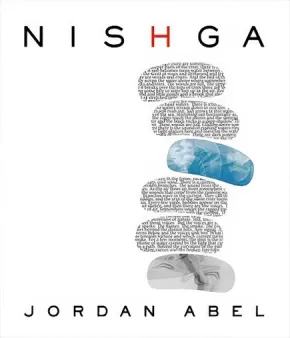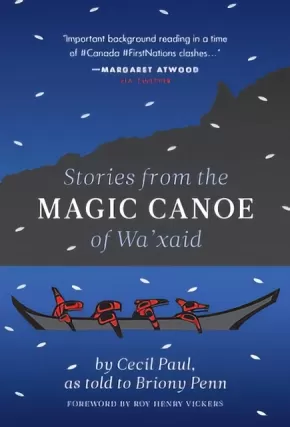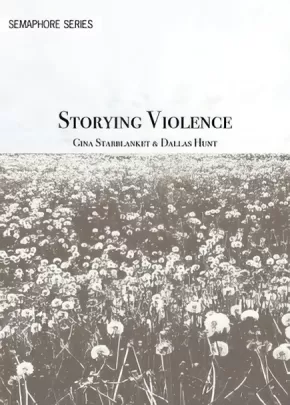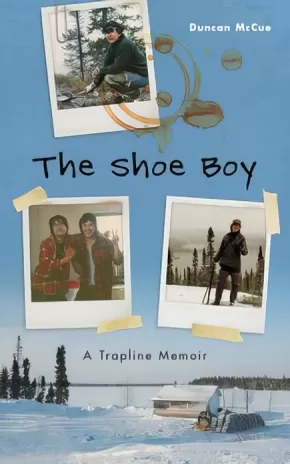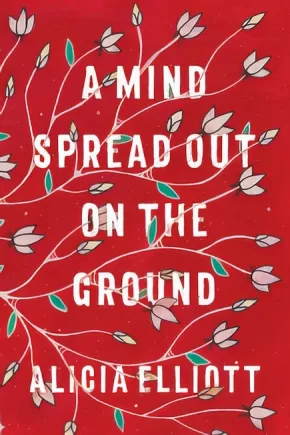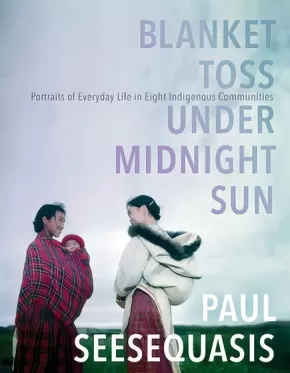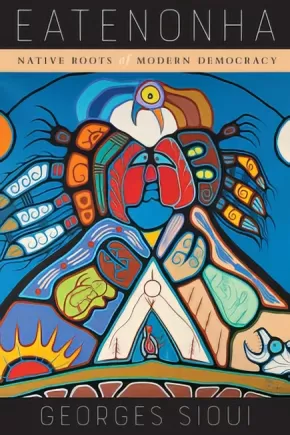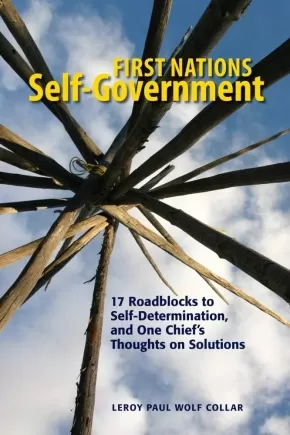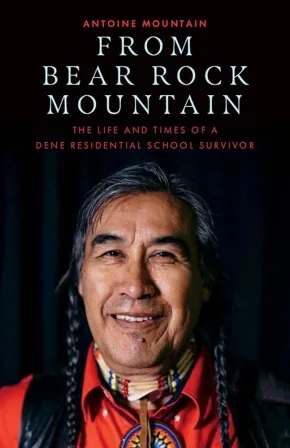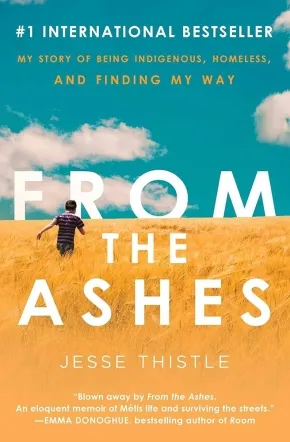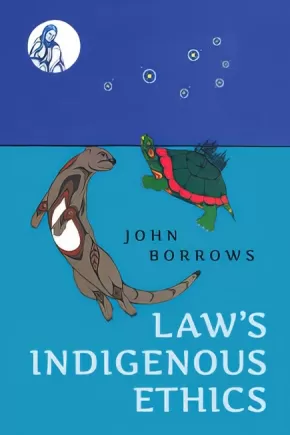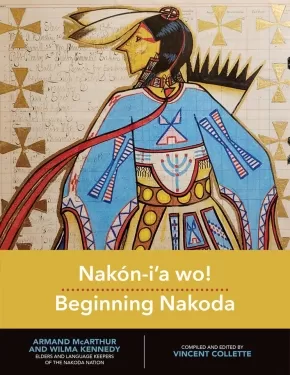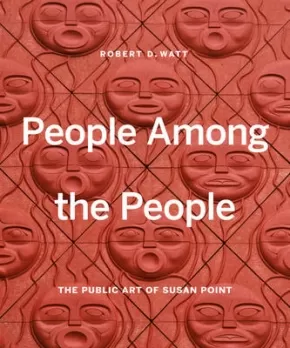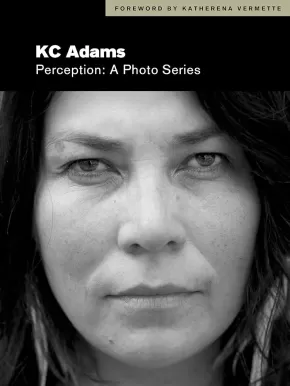
First Nations
151
-
165
of
244 Results;
Sort By
Go To
of 17
Nishga (HC) (1 in Stock)
$32.95
Format:
Hardcover
Text Content Territories:
Indigenous Canadian; First Nations; Nisga'a;
ISBN / Barcode: 9780771007903
Synopsis:
Synopsis:
From Griffin Poetry Prize winner Jordan Abel comes a groundbreaking and emotionally devastating autobiographical meditation on the complicated legacies that Canada's reservation school system has cast on his grandparents', his parents' and his own generation.
NISHGA is a deeply personal and autobiographical book that attempts to address the complications of contemporary Indigenous existence. As a Nisga'a writer, Jordan Abel often finds himself in a position where he is asked to explain his relationship to Nisga'a language, Nisga'a community, and Nisga'a cultural knowledge. However, as an intergenerational survivor of residential school--both of his grandparents attended the same residential school in Chilliwack, British Columbia--his relationship to his own Indigenous identity is complicated to say the least.
NISHGA explores those complications and is invested in understanding how the colonial violence originating at the Coqualeetza Indian Residential School impacted his grandparents' generation, then his father's generation, and ultimately his own. The project is rooted in a desire to illuminate the realities of intergenerational survivors of residential school, but sheds light on Indigenous experiences that may not seem to be immediately (or inherently) Indigenous.
Drawing on autobiography, a series of interconnected documents (including pieces of memoir, transcriptions of talks, and photography), NISHGA is a book about confronting difficult truths and it is about how both Indigenous and non-Indigenous peoples engage with a history of colonial violence that is quite often rendered invisible.
Reviews
“With NISHGA, Jordan Abel has reinvented the memoir, incorporating personal anecdotes, archival footage, legal documentation, photos and concrete poetry to create an unforgettable portrait of an Indigenous artist trying to find his place in a world that insists Indigeneity can only ever be the things that he is not. Abel deftly shows us the devastating impact this gate-keeping has had on those who, through no decisions of their own, have been ripped from our communities and forced to claw their way back home, or to a semblance of home, often unassisted. This is a brave, vulnerable, brilliant work that will change the face of nonfiction, as well as the conversations around what constitutes Indigenous identity. It's a work I will return to again and again.” —Alicia Elliott, author of A Mind Spread Out on the Ground
“In NISHGA, Jordan Abel puts to use the documentary impulse that has already established him as an artist of inimitable methodological flair. By way of a mixture of testimonial vignettes, recordings of academic talks, found text/art, and visual art/concrete poetry, Abel sculpts a narrative of dislocation and self-examination that pressurizes received notions of “Canada” and “history” and “art” and “literature” and “belonging” and “forgiveness.” Yes, it is a book of that magnitude, of that enormity and power. By its Afterword, NISHGA adds up to a work of personal and national reckoning that is by turns heartbreaking and scathing.” —Billy-Ray Belcourt, author of NDN Coping Mechanisms and A History of My Brief Body
"This is a heart-shattering read, and will also be a blanket for others looking for home. NISHGA is a work of absolute courage and vulnerability. I am in complete awe of the sorrow here and the bravery. Mahsi cho, Jordan.” —Richard Van Camp, author of Moccasin Square Gardens
“Jordan Abel digs deeply into the questions we should all be asking. Questions that need no explanation but ones that require us to crawl back into our bones, back into the marrow of our understanding. NISHGA is a ceremony where we need to be silent. Where we need to listen.” —Gregory Scofield, author of Witness, I Am
Additional Information
288 pages | 7.25" x 8.62"
Stories from the Magic Canoe of Wa'xaid (PB)
$25.00
Format:
Paperback
Text Content Territories:
Indigenous Canadian; First Nations; Haisla (Kitamaat); Xenaksiala (Henaksiala);
ISBN / Barcode: 9781771603379
Synopsis:
Synopsis:
A remarkable and profound collection of reflections by one of North America’s most important Indigenous leaders.
My name is Wa’xaid, given to me by my people. ‘Wa’ is ‘the river’, ‘Xaid’ is ‘good’ – good river. Sometimes the river is not good. I am a Xenaksiala, I am from the Killer Whale Clan. I would like to walk with you in Xenaksiala lands. Where I will take you is the place of my birth. They call it the Kitlope. It is called Xesdu’wäxw (Huschduwaschdu) for ‘blue, milky, glacial water’. Our destination is what I would like to talk about, and a boat – I call it my magic canoe. It is a magical canoe because there is room for everyone who wants to come into it to paddle together. The currents against it are very strong but I believe we can reach that destination and this is the reason for our survival. —Cecil Paul
Who better to tell the narrative of our times about the restoration of land and culture than Wa’xaid (the good river), or Cecil Paul, a Xenaksiala elder who pursued both in his ancestral home, the Kitlope — now the largest protected unlogged temperate rainforest left on the planet. Paul’s cultural teachings are more relevant today than ever in the face of environmental threats, climate change and social unrest, while his personal stories of loss from residential schools, industrialization and theft of cultural property (the world-renowned Gps’golox pole) put a human face to the survivors of this particular brand of genocide.
Told in Cecil Paul’s singular, vernacular voice, Stories from the Magic Canoe spans a lifetime of experience, suffering and survival. This beautifully produced volume is in Cecil’s own words, as told to Briony Penn and other friends, and has been meticulously transcribed. Along with Penn’s biography of Cecil Paul, Following the Good River, Stories from the Magic Canoe provides a valuable documented history of a generation that continues to deal with the impacts of brutal colonization and environmental change at the hands of politicians, industrialists and those who willingly ignore the power of ancestral lands and traditional knowledge.
Reviews
“The Magic Canoe brings peace to one’s soul. It is a warm wind moving our hearts. Wa’xaid takes us on a journey that regenerates and empowers us. T’ismista, the stone hunter, looks down on the Magic Canoe and reminds us to listen to storytellers like Cecil Paul. This is a story for the family of man; we are all in the canoe together and our stories need to be shared with each other.” – Roy Henry Vickers
Educator Information
Recommended in the Canadian Indigenous Books for Schools 2019-2020 resource list, as well as the 2020-2021 resource list, for grades 9 to 12 for English Language Arts, Social Studies, and Science.
Additional Information
224 pages | 5.00" x 7.00" | Paperback
Storying Violence: Unravelling Colonial Narratives in the Stanley Trial
$15.00
Format:
Paperback
Text Content Territories:
Indigenous Canadian; First Nations; Cree (Nehiyawak);
Reading Level: N/A
ISBN / Barcode: 9781927886373
Synopsis:
Synopsis:
In August of 2016, Cree youth Colten Boushie was shot dead by Saskatchewan farmer Gerald Stanley. Using colonial and socio-political narratives that underlie white rural settler life, the authors position the death of Boushie and trial of Stanley in relation to Indigenous histories and experiences in Saskatchewan. They point to the Stanley case as just one instance of Indigenous peoples' presence being seen as a threat to settler-colonial security, then used to sanction the exclusion, violent treatment, and death of Indigenous peoples and communities.
Additional Information
120 pages | 5.00" x 7.00"
The Shoe Boy: A Trapline Memoir
$19.95
Format:
Paperback
Text Content Territories:
Indigenous Canadian; First Nations; Anishinaabeg; Cree (Nehiyawak); James Bay Cree;
ISBN / Barcode: 9780774880572
Synopsis:
Synopsis:
At the age of seventeen, an Anishinabe boy who was raised in the south joined a James Bay Cree family in a one-room hunting cabin in the isolated wilderness of northern Quebec. In the five months that followed, he learned a way of life on the land with which few are familiar, where the daily focus is on the necessities of life, and where both skill and finesse are required for self-sufficiency.
In The Shoe Boy, that boy – Duncan McCue – takes us on an evocative journey that explores the hopeful confusion of the teenage years, entwined with the challenges and culture shock of coming from a mixed-race family and moving to the unfamiliar North. As he reflects on his search for his own personal identity, he illustrates the relationship Indigenous peoples have with their lands, and the challenges urban Indigenous people face when they seek to reconnect to traditional lifestyles.
The result is a contemplative, honest, and unexpected coming-of-age memoir set in the context of the Cree struggle to protect their way of life, after massive hydro-electric projects forever altered the landscape they know as Eeyou Istchee.
This memoir will be of interest to readers of all ages who want to know more about the interplay of traditional and contemporary Indigenous lifestyles, the challenges of identity for First Nations youth, and the relationship Indigenous peoples have with their land.
Reviews
"Frank, funny and evocative, The Shoe Boy deftly entwines the challenges of identity for First Nations youth, the sexual frustration and hopeful confusion of the teenage years, and the realities of living in an enduring state of culture shock." — CBC Books
"The Shoe Boy is a valuable read and will enrich anyone who tunes in to CBC Radio One on Sunday afternoons, as McCue establishes his voice in the conversation of Canada.— Thomas Billingsley, Globe and Mail
Educator Information
Related Topics: Biography, Memoirs, and Letters; Canadian Studies; Indigenous Studies.
Recommended in the Canadian Indigenous Books for Schools 2020/2021 resource list for grades 9 to 12 for English Language Arts and Social Studies.
Caution: mature language, references to sex, alcohol, and suicide.
Additional Information
88 pages | 5.00" x 8.00"
A Mind Spread Out on the Ground
$21.00
Format:
Paperback
Text Content Territories:
Indigenous Canadian; First Nations; Haudenosaunee (Iroquois);
Grade Levels: 12; University/College;
ISBN / Barcode: 9780385692403
Synopsis:
Synopsis:
A bold and profound work by Haudenosaunee writer Alicia Elliott, A Mind Spread Out on the Ground is a personal and critical meditation on trauma, legacy, oppression and racism in North America.
In an urgent and visceral work that asks essential questions about the treatment of Native people in North America while drawing on intimate details of her own life and experience with intergenerational trauma, Alicia Elliott offers indispensable insight and understanding to the ongoing legacy of colonialism. What are the links between depression, colonialism and loss of language--both figurative and literal? How does white privilege operate in different contexts? How do we navigate the painful contours of mental illness in loved ones without turning them into their sickness? How does colonialism operate on the level of literary criticism?
A Mind Spread Out on the Ground is Alicia Elliott's attempt to answer these questions and more. In the process, she engages with such wide-ranging topics as race, parenthood, love, mental illness, poverty, sexual assault, gentrification, writing and representation. Elliott makes connections both large and small between the past and present, the personal and political--from overcoming a years-long history with head lice to the way Native writers are treated within the Canadian literary industry; her unplanned teenage pregnancy to the history of dark matter and how it relates to racism in the court system; her childhood diet of Kraft dinner to how systematic oppression is linked to depression in Native communities. With deep consideration and searing prose, Elliott extends far beyond her own experiences to provide a candid look at our past, an illuminating portrait of our present and a powerful tool for a better future.
Reviews
"This book is hard, vital medicine. It is a dance of survival and cultural resurgence. Above all, it is breathtakingly contemporary Indigenous philosophy, in which the street is also part of the land, and the very act of thinking is conditioned by struggles for justice and well-being." —Warren Cariou, author of Lake of the Prairies
"These essays are of fiercest intelligence and courageous revelation. Here, colonialism and poverty are not only social urgencies, but violence felt and fought in the raw of the everyday, in embodied life and intimate relations. This is a stunning, vital triumph of writing." —David Chariandy, author of Brother
"Wildly brave and wholly original, Alicia Elliot is the voice that rouses us from the mundane, speaks political poetry and brings us to the ceremony of everyday survival. Her words remind us to carry both our weapons and our medicines, to hold both our strength and our open, weeping hearts. A Mind Spread Out on the Ground is what happens when you come in a good way to offer prayer, and instead, end up telling the entire damn truth of it all." —Cherie Dimaline, author of The Marrow Thieves
"A Mind Spread Out on the Ground is a new lens on Indigenous Canadian literature." —Terese Marie Mailhot, author of Heart Berries
"We need to clone Alicia Elliott because the world needs more of this badass writer. A Mind Spread Out on the Ground showcases her peculiar alchemy, lighting the darkest corners of racism, classism, sexism with her laser-focused intellect and kind-hearted soul-searching. A fresh and revolutionary cultural critic alternately witty, vulnerable and piercing." —Eden Robinson, author of Son of a Trickster and Trickster Drift
"The future of CanLit is female, is Indigenous—is Alicia Elliott. I anticipate this book to be featured on every 'best of' and award list in 2019, and revered for years to come." —Vivek Shraya, author of I’m Afraid of Men and even this page is white
"In A Mind Spread Out on the Ground, Elliott invites readers into her unceded mind and heart, taking us on a beautiful, incisive and punk rock tour of Tuscarora brilliance. Elliott's voice is fire with warmth, light, rage and endless transformation." —Leanne Betasamosake Simpson, author of This Accident of Being Lost
"Alicia Elliott has gifted us with an Indigenous woman's coming of age story, told through engagingly thoughtful, painfully poignant and enraging essays on race, love and belonging. With poetic prose and searing honesty, she lays bare what it is like to grow up Indigenous and exist in a country proud of its tolerance, but one that has proven to be anything but. She opens eyes and captures hearts, leading you by the hand to see our fractured world through her eyes. Alicia is exactly the voice we need to hear now." —Tanya Talaga, author of Seven Fallen Feathers
"Incisive. That's the word I keep coming back to. A Mind Spread out on the Ground is incredibly incisive. Alicia Elliot slices through the sometimes complicated, often avoided issues affecting so many of us in this place now called Canada. She is at once political, personal, smart, funny, global and, best of all, divinely human. Necessary. That's the other word I keep thinking about. In every chapter, she manages to find the perfect word and the precise argument needed—I found myself saying 'yes, yes, that is exactly it' more than once. I am so grateful for her work." —Katherena Vermette, author of The Break
"A Mind Spread Out on the Ground is an astonishing book of insightful and affecting essays that will stay with you long after the final page." —Zoe Whittall, author of The Best Kind of People
Additional Information
240 pages | 5.75" x 8.50"
Blanket Toss Under Midnight Sun: Portraits of Everyday Life in Eight Indigenous Communities
$32.95
Format:
Paperback
Text Content Territories:
Indigenous Canadian; First Nations; Inuit; Métis;
ISBN / Barcode: 9780735273313
Synopsis:
Synopsis:
A revelatory portrait of eight Indigenous communities from across North America, shown through never-before-published archival photographs--a gorgeous extension of Paul Seesequasis's popular social media project.
In 2015, writer and journalist Paul Seesequasis found himself grappling with the devastating findings of Canada's Truth and Reconciliation Commission report on the residential school system. He sought understanding and inspiration in the stories of his mother, herself a residential school survivor. Gradually, Paul realized that another, mostly untold history existed alongside the official one: that of how Indigenous peoples and communities had held together during even the most difficult times. He embarked on a social media project to collect archival photos capturing everyday life in First Nations, Métis and Inuit communities from the 1920s through the 1970s. As he scoured archives and libraries, Paul uncovered a trove of candid images and began to post these on social media, where they sparked an extraordinary reaction. Friends and relatives of the individuals in the photographs commented online, and through this dialogue, rich histories came to light for the first time.
Blanket Toss Under Midnight Sun collects some of the most arresting images and stories from Paul's project. While many of the photographs live in public archives, most have never been shown to the people in the communities they represent. As such, Blanket Toss is not only an invaluable historical record, it is a meaningful act of reclamation, showing the ongoing resilience of Indigenous communities, past, present--and future.
In 2015, writer and journalist Paul Seesequasis found himself grappling with the devastating findings of Canada's Truth and Reconciliation Commission report on the residential school system. He sought understanding and inspiration in the stories of his mother, herself a residential school survivor. Gradually, Paul realized that another, mostly untold history existed alongside the official one: that of how Indigenous peoples and communities had held together during even the most difficult times. He embarked on a social media project to collect archival photos capturing everyday life in First Nations, Métis and Inuit communities from the 1920s through the 1970s. As he scoured archives and libraries, Paul uncovered a trove of candid images and began to post these on social media, where they sparked an extraordinary reaction. Friends and relatives of the individuals in the photographs commented online, and through this dialogue, rich histories came to light for the first time.
Blanket Toss Under Midnight Sun collects some of the most arresting images and stories from Paul's project. While many of the photographs live in public archives, most have never been shown to the people in the communities they represent. As such, Blanket Toss is not only an invaluable historical record, it is a meaningful act of reclamation, showing the ongoing resilience of Indigenous communities, past, present--and future.
Reviews
“A revelatory work of astonishing grace, Blanket Toss Under Midnight Sun encapsulates an invisible generation brought to glorious life. So many times, the subject could have been my auntie, cousin or grandmother. When people ask why I live on the rez, I’ll point them to this book, this stunning reclamation of narrative, which so movingly shows the love of place, community and self.” —Eden Robinson
“A revelatory work of astonishing grace, Blanket Toss Under Midnight Sun encapsulates an invisible generation brought to glorious life. So many times, the subject could have been my auntie, cousin or grandmother. When people ask why I live on the rez, I’ll point them to this book, this stunning reclamation of narrative, which so movingly shows the love of place, community and self.” —Eden Robinson
“Paul Seesequasis's Blanket Toss Under Midnight Sun is a wonderful collection of found photographs and recovered histories that link us to a past as old as the land and as precious as breath.” —Thomas King, author of The Inconvenient Indian
Additional Information
192 pages | 7.08" x 9.03" | Colour photos throughout
Eatenonha: Native Roots of Modern Democracy
$39.95
Format:
Hardcover
Text Content Territories:
Indigenous Canadian; First Nations; Huron-Wendat (Ouendat); Seawi Clan;
ISBN / Barcode: 9780773556393
Synopsis:
Synopsis:
An exploration of the historical and future significance of Canada's Native soul.
Eatenonha is the Wendat word for love and respect for the Earth and Mother Nature. For many Native peoples and newcomers to North America, Canada is a motherland, an Eatenonha - a land in which all can and should feel included, valued, and celebrated.
In Eatenonha Georges Sioui presents the history of a group of Wendat known as the Seawi Clan and reveals the deepest, most honoured secrets possessed by his people, by all people who are Indigenous, and by those who understand and respect Indigenous ways of thinking and living. Providing a glimpse into the lives, ideology, and work of his family and ancestors, Sioui weaves a tale of the Wendat's sparsely documented historical trajectory and his family's experiences on a reserve. Through an original retelling of the Indigenous commercial and social networks that existed in the northeast before European contact, the author explains that the Wendat Confederacy was at the geopolitical centre of a commonwealth based on peace, trade, and reciprocity. This network, he argues, was a true democracy, where all beings of all natures were equally valued and respected and where women kept their place at the centre of their families and communities.
Identifying Canada's first civilizations as the originators of modern democracy, Eatenonha represents a continuing quest to heal and educate all peoples through an Indigenous way of comprehending life and the world.
Reviews
"Eatenonha is a unique interweaving of self, family, First Nation, and Indigenous peoples of the Americas and elsewhere." - John Steckley, Humber College
Educator Information
Recommended in the Canadian Indigenous Books for Schools 2020/2021 resource list for grades 10 to 12 for use in these areas: English Language Arts and Social Studies.
Additional Information
200 pages | 6.00" x 9.00"
First Nations Self-Government: 17 Roadblocks, and One Chief's Thoughts on Solutions
$24.95
Format:
Paperback
Text Content Territories:
Indigenous Canadian; First Nations; Blackfoot Confederacy (Siksikaitsitapi); Siksika (Blackfoot);
Grade Levels: University/College;
ISBN / Barcode: 9781550598216
Synopsis:
Synopsis:
Indigenous Peoples in Canada are continuing to assert their right to self-determination in this era of reconciliation. While dozens of Indigenous communities have signed varying forms of self-government agreements with the federal government, Indigenous Nations still face many obstacles along the path to true self-determination.
As a former Chief of Siksika Nation in southern Alberta, Leroy Wolf Collar dealt with many of the same problems other Indigenous Nations face across the country. From serious housing shortages to the lack of opportunities for youth, Chief Wolf Collar experienced the challenges and frustrations that come from operating in a colonial system still constrained by the Indian Act.
How do Indigenous Peoples move on from this defective system? Chief Wolf Collar identifies 17 issues that currently hinder Indigenous Nations—including broken treaty promises, problems with common forms of band administration, and the intrusion of provincial governments—along with potential solutions to overcome them.
This guide is for current and aspiring Indigenous leaders who want to increase their understanding of good governance, management, and leadership, as well as those who want to explore issues around Indigenous self-determination in Canada.
Educator Information
Recommended in the Canadian Indigenous Books for Schools 2020/2021 resource list for grades 11 and 12 for use in these areas: Law, English Language Arts, and Social Studies.
Additional Information
128 pages | 6.00" x 9.00"
From Bear Rock Mountain: The Life and Times of a Dene Residential School Survivor
$30.00
Format:
Hardcover
Text Content Territories:
Indigenous Canadian; First Nations; Dene;
ISBN / Barcode: 9781927366806
Synopsis:
Synopsis:
In this poetic, poignant memoir, Dene artist and social activist Antoine Mountain paints an unforgettable picture of his journey from residential school to art school—and his path to healing.
In 1949, Antoine Mountain was born on the land near Radelie Koe, Fort Good Hope, Northwest Territories. At the tender age of seven, he was stolen away from his home and sent to a residential school—run by the Roman Catholic Church in collusion with the Government of Canada—three hundred kilometres away. Over the next twelve years, the three residential schools Mountain was forced to attend systematically worked to erase his language and culture, the very roots of his identity.
While reconnecting to that which had been taken from him, he had a disturbing and painful revelation of the bitter depths of colonialism and its legacy of cultural genocide. Canada has its own holocaust, Mountain argues.
As a celebrated artist and social activist today, Mountain shares this moving, personal story of healing and the reclamation of his Dene identity.
Educator Information
Recommended in the Canadian Indigenous Books for Schools 2019-2020 resource list as being useful for grades 9 to 12 in the following subject areas: English Language Arts, Social Studies.
Included in this story are personal stories of residential school and addiction.
Additional Information
272 pages | 5.50" x 8.50"
From the Ashes: My Story of Being Métis, Homeless, and Finding My Way (PB) (1 in Stock)
$24.99
Format:
Paperback
Text Content Territories:
Indigenous Canadian; First Nations; Cree (Nehiyawak); Métis;
Reading Level: N/A
ISBN / Barcode: 9781982101213
Synopsis:
Synopsis:
In this extraordinary and inspiring debut memoir, Jesse Thistle, once a high school dropout and now a rising Indigenous scholar, chronicles his life on the streets and how he overcame trauma and addiction to discover the truth about who he is.
If I can just make it to the next minute... then I might have a chance to live; I might have a chance to be something more than just a struggling crackhead.
From the Ashes is a remarkable memoir about hope and resilience, and a revelatory look into the life of a Métis-Cree man who refused to give up.
Abandoned by his parents as a toddler, Jesse Thistle briefly found himself in the foster-care system with his two brothers, cut off from all they had known. Eventually the children landed in the home of their paternal grandparents, but their tough-love attitudes meant conflicts became commonplace. And the ghost of Jesse’s drug-addicted father haunted the halls of the house and the memories of every family member. Struggling, Jesse succumbed to a self-destructive cycle of drug and alcohol addiction and petty crime, spending more than a decade on and off the streets, often homeless. One day, he finally realized he would die unless he turned his life around.
In this heartwarming and heartbreaking memoir, Jesse Thistle writes honestly and fearlessly about his painful experiences with abuse, uncovering the truth about his parents, and how he found his way back into the circle of his Indigenous culture and family through education.
An eloquent exploration of what it means to live in a world surrounded by prejudice and racism and to be cast adrift, From the Ashes is, in the end, about how love and support can help one find happiness despite the odds.
Awards
- 2020 Indigenous Voices Awards Winner for Published Prose in English
Reviews
“From the Ashes hits you like a punch in the gut. It’s an unflinching, heartrending and beautifully written story of survival against seemingly impossible odds. But it’s also a book that should make you furious. Thistle paints a vivid portrait of a country seemingly incapable of doing right by Indigenous youth or by those struggling with homelessness, addiction and intergenerational trauma. That he survived to tell this story is truly a miracle. Still, one question haunts me after finishing this powerful and devastating book: How do we ensure that the next generation isn’t forced to navigate a broken system that takes their lives for granted and fails them at every turn? My greatest hope, then, is that From the Ashes will be the wakeup call Canada needs.” — IAN MOSBY, historian and author of Food Will Win the War
Educator Information
Caution: Deals with mature subject matter.
Additional Information
368 pages | 6.00" x 9.00"
Indigenous Relations: Insights, Tips & Suggestions to Make Reconciliation a Reality
$19.95
Format:
Paperback
Text Content Territories:
Indigenous Canadian; First Nations; Inuit; Métis;
ISBN / Barcode: 9781989025642
Synopsis:
Synopsis:
Indigenous Relations: Your Guide to Working Effectively with First Nations, Métis, and Inuit.
A timely sequel to the bestselling 21 Things You May Not Know About the Indian Act - and an invaluable guide for anyone seeking to work more effectively with Indigenous Peoples.
We are all treaty people. But what are the everyday impacts of treaties, and how can we effectively work toward reconciliation if we're worried our words and actions will unintentionally cause harm?
Hereditary chief and leading Indigenous relations trainer Bob Joseph is your guide to respecting cultural differences and improving your personal relationships and business interactions with Indigenous Peoples. Practical and inclusive, Indigenous Relations interprets the difference between hereditary and elected leadership, and why it matters; explains the intricacies of Aboriginal Rights and Title, and the treaty process; and demonstrates the lasting impact of the Indian Act, including the barriers that Indigenous communities face and the truth behind common myths and stereotypes perpetuated since Confederation.
Indigenous Relations equips you with the necessary knowledge to respectfully avoid missteps in your work and daily life, and offers an eight-part process to help business and government work more effectively with Indigenous Peoples - benefitting workplace culture as well as the bottom line. Indigenous Relations is an invaluable tool for anyone who wants to improve their cultural competency and undo the legacy of the Indian Act.
Educator Information
Recommended in the Canadian Indigenous Books for Schools 2020/2021 resource list for grades 11 and 12 in these areas: Social Studies, Law, English Language Arts, and Social Justice.
Additional Information
200 pages | 8.00" x 5.00"
Law's Indigenous Ethics
$47.95
Format:
Paperback
Text Content Territories:
Indigenous Canadian; First Nations; Anishinaabeg;
Grade Levels: 12; University/College;
ISBN / Barcode: 9781487523558
Synopsis:
Synopsis:
Law’s Indigenous Ethics examines the revitalization of Indigenous peoples’ relationship to their own laws and, in so doing, attempts to enrich Canadian constitutional law more generally. Organized around the seven Anishinaabe grandmother and grandfather teachings of love, truth, bravery, humility, wisdom, honesty, and respect, this book explores ethics in relation to Aboriginal issues including title, treaties, legal education, and residential schools.
With characteristic depth and sensitivity, John Borrows brings insights drawn from philosophy, law, and political science to bear on some of the most pressing issues that arise in contemplating the interaction between Canadian state law and Indigenous legal traditions. In the course of a wide-ranging but accessible inquiry, he discusses such topics as Indigenous agency, self-determination, legal pluralism, and power. In its use of Anishinaabe stories and methodologies drawn from the emerging field of Indigenous studies, Law’s Indigenous Ethics makes a significant contribution to scholarly debate and is an essential resource for readers seeking a deeper understanding of Indigenous rights, societies, and cultures.
Reviews
"Law’s Indigenous Ethics addresses very controversial topics in Canada, not just in Indigenous legal studies, but far beyond that. John Borrows employs story work methodology, along with thorough legal research, ensuring that his work is truly leading edge. Law’s Indigenous Ethics will further advance Indigenous studies in Canada and beyond. Borrows’s work moves beyond the binary, divisive, and linear ideologies dominating the Indigenous intellectual landscape in Canada. He provides nuance, complicates dominate narratives, and gives the reader much food for thought and, more importantly, asks the reader to think, reflect, and embrace the principles embedded in the seven grandmother and grandfather teachings as a whole." -Deborah McGregor, Osgoode Hall Law School, Canada Research Chair in Indigenous Environmental Justice, York University
"Law’s Indigenous Ethics is extremely novel, important, and has the potential for great influence. Demonstrating tremendous expertise and fluency with its subjects, John Borrows’s arguments are sound and thoughtful, providing a number of important insights that lead me to adjust the way I think about issues that are very familiar to me." -Bethany Berger, Wallace Stevens Professor of Law, University of Connecticut
Additional Information
400 pages | 6.00" x 9.00"
Nakón-i'a wo! Beginning Nakoda
$34.95
Editors:
Format:
Coil Bound
Text Content Territories:
Indigenous Canadian; First Nations; Assiniboine (Nakoda Oyadebi);
ISBN / Barcode: 9780889776623
Synopsis:
Synopsis:
Nakón-i'a wo! Beginning Nakoda is a language resource designed to help revitalize and document Nakoda, now spoken in Manitoba and Saskatchewan.
Written for beginning learners of Nakoda (also known as Assiniboine), this workbook, arranged thematically, provides a Nakoda/English lexicon, a vocabulary, a table of kinship terms, a glossary of linguistic terminology, and exercises to do after each lesson.
This book was made possible with the assistance of Elders and Language Keepers of the Nakoda Nation: Armand McArthur and Wilma Kennedy, Main Consultants; with additional contributions by Pete Bigstone, Leona Kroscamp, Freda O'Watch, and Ken Armstrong.
Educator & Series Information
Recommended for Grades 7+
Part of the Indigenous Languages for Beginners series.
Additional Information
304 pages | 8.50" x 11.00" | Black and white illustrations throughout
People Among the People: The Public Art of Susan Point
$60.00
Artists:
Format:
Hardcover
Text Content Territories:
Indigenous Canadian; First Nations; Salish; Coast Salish; Musqueam;
ISBN / Barcode: 9781773270425
Synopsis:
Synopsis:
“I feel that it is important to re-establish our Salish footprint upon our lands, to create a visual expression of the link between the past and present that is both accessible and people-friendly. . . . I create unique, ‘original’ artwork that honours both my people and the diverse group of peoples from around the world who have come to live upon our lands on the Northwest Coast. My hope is that my art leaves a lasting impression on visitors, locals, and the surrounding communities.” — Susan Point
This beautifully designed book is the first to explore Susan Point's publicly commissioned artworks from coast to coast.
Susan Point’s unique artworks have been credited with almost single-handedly reviving the traditional Coast Salish art style. Once nearly lost to the effects of colonization, the crescents, wedges, and human and animal forms characteristic of the art of First Nations peoples living around the Salish Sea can now be seen around the world, reinvigorated with modern materials and techniques, in her serigraphs and public art installations—and in the works of a new generation of artists that she’s inspired.
People Among the People beautifully displays the breadth of Susan Point’s public art, from cast-iron manhole covers to massive carved cedar spindle whorls, installed in locations from Vancouver to Zurich. Through extensive interviews and access to her archives, Robert D. Watt tells the story of each piece, whether it’s the evolution from sketch to carving to casting, or the significance of the images and symbolism, which is informed by surviving traditional Salish works Point has studied and the Oral Traditions of her Musqueam family and elders.
In her long quest to re-establish a Coast Salish footprint in Southwest British Columbia and the Pacific Northwest of the US, Point has received many honours, including the Order of Canada and the Audain Lifetime Achievement Award. This gorgeous and illuminating book makes it clear they are all richly deserved.
Additional Information
208 pages | 10.17" x 12.39" | Colour photographs throughout | Hardcover
Perception: A Photo Series
$34.00
Artists:
Format:
Hardcover
Text Content Territories:
Indigenous Canadian; First Nations; Inuit; Métis;
ISBN / Barcode: 9781553797869
Synopsis:
Synopsis:
Social action art in book form, Perception: A Photo Series encourages readers to look and then look again.
Tired of reading negative and disparaging remarks directed at Indigenous people of Winnipeg in the press and social media, artist KC Adams created a photo series that presented another perspective. Called “Perception Photo Series,” it confronted common stereotypes of First Nation, Inuit and Métis people to illustrate a more contemporary truthful story.
First appearing on billboards, in storefronts, in bus shelters, and projected onto Winnipeg’s downtown buildings, Adam’s stunning photographs now appear in her new book, Perception: A Photo Series. Meant to challenge the culture of apathy and willful ignorance about Indigenous issues, Adams hopes to unite readers in the fight against prejudice of all kinds.
Reviews
"Indeed, the potential lasting impact of this collection can’t be underestimated; this is socially engaged art at its best." — Kirkus Reviews, March 2019
"KC Adams' Perception series challenges us to bridge thought and reality; emerging on the other side better having challenged ourselves to see Indigenous peoples for what they really are. We are grandparents, parents, children - and everything in between. As Adams shows through this incredible exhibition of faces and feelings, we are beautiful, whole, and complex peoples irreducible to stereotypes and slander." — Romeo Saganash (Cree, father, activist, and dreamer)
"KC Adams's Perception series absolutely captured the most devastating perceptions from the colonial mind, and the accompanying lack of knowledge about the truth of Canada's historical relationship to Indigenous Peoples. Succinctly and beautifully, KC transformed that narrative in this series. It is a prolific piece which will always be a source of inspiration for truth and reconciliation. It is unforgettable. Kichi miigwetch KC Adams!." — Tina Keeper, March 2019
"We hear the saying, “A picture can say a thousand words” quite often, but sometimes we don’t take the time to actually look at what we are seeing and what it is saying. Sometimes photographs are taken for fun, with no real meaning behind them. But there are times when a photograph is taken for a purpose, taken to deliver a message. KC Adams, with Perception, is doing just that. She is not only delivering a message, she is also making a statement in order to break down the racial prejudices and stereotypes towards the indigenous community in Canada.... From looking at the first picture that shows their reaction to what people think of them to looking at their second picture that shows their look of pure happiness coupled with their name, their tribes, and the words they would use to describe themselves is what is causing people to think twice, think differently, and spark conversation." — Leslie Trotter, NetGalley, March 2019
"I admire what KC Adams did when she kept hearing disparaging remarks and slurs against the Native peoples of Canada. As an indigenous person herself, she too, had been subjected to mistreatment and prejudice just be being someone who looks different. She was determined to find a way to get people's perceptions to change. The Native/indigenous people and their cultures were here to stay and non-Native people had to come to terms with and accept that. Adams choose to use her skill as a photographer as a catalyst to address the racism and prejudice head on.... She took a series of two photographs of the same person; one as she said a racist remark, the other as she said something positive about the person. She then put up these pictures as posters around municipal areas. The first picture was headlined with the slur said while filming it, the bottom said "Think again". The second picture (taken when she invoked a positive response in them) told who they were and some things about them. This photography series (now captured in her book Perceptions) helped people recognize their own reactions to Native peoples and realize that they were unfair and untrue.... I love when art is not only creative, but an agent for social change! Kudos, Ms. Adams! Well done!" — Kathy Fuchs, NetGalley, February 2019
"Perception is an impressive collection...an inside look into a living legend’s photography practice (I say this in no uncertain terms) and, more importantly, as Adams intended, a reminder to look past the hurt in search of a love that can bring us all home." — Lindsay Nixon, Editor-at-Large Canadian Art, author nîtisânak, Metonymy Press, March 2019
"This is an amazing portrayal of the indigenous community. The emotions displayed by each individual are clearly defined. I highly recommend this resource be placed in all libraries and used to dispel racism and discriminatory ideas." — Shelley Stefanowich, NetGalley, April 2019
Educator & Series Information
For Grades 9-12 / Young Adults
Foreword by Katherena Vermette; Critical essay by Cathy Mattes
Caution: Mature subject matter/language in some instances as this book is dealing with stereotypes and prejudice (radicalized language and derogatory terminology).
Recommended in the Canadian Indigenous Books for Schools 2019-2020 resource list for grades 10 to 12 for Art Education, Social Studies, Social Justice, and English Language Arts.
This book is part of The Debwe Series, a collection of exceptional Indigenous writings from across Canada.
Additional Information
120 pages | 6.75" x 9.00" | Hardcover | Foreward from Katherena Vermette
Sort By
Go To
of 17

